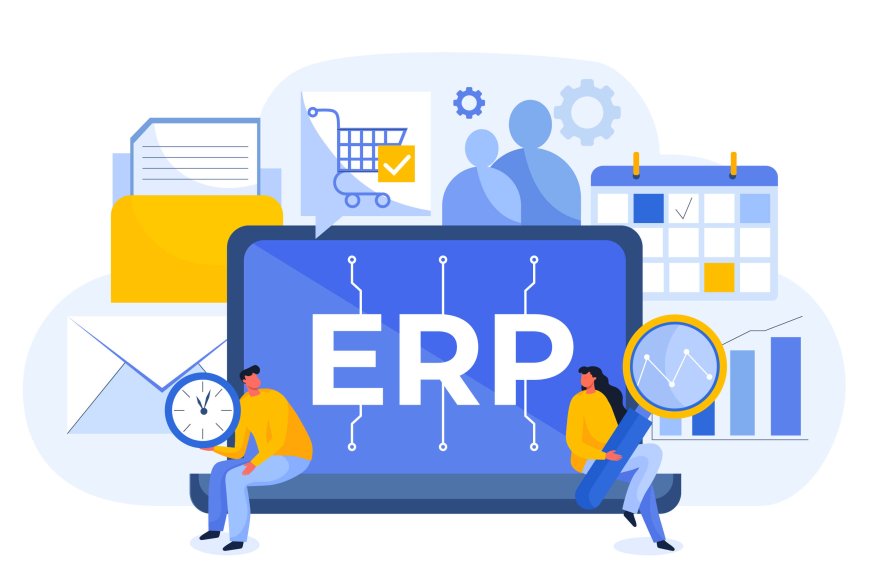Farm ERP software: Real game changing tool or expensive bonus?
ERP works as a practical solution in many industries, for example, retail. Is it a suitable tool for farmers or someone is trying to sell it as one?

Which innovations will redefine the agricultural sector in the next half-decade? We hold the key, and it hinges on technological advancements. Elevated costs of fertilizers, logistical challenges, and international disputes are altering the traditional pathways of agricultural evolution. Strategies that farmers envisioned five years ago may no longer align with today's reality. This article will delve into the role and advantages of farm ERP software, emphasizing its significance for agricultural operations of any scale, encompassing a variety of daily tasks and available resources.
Understanding Farm ERP Software
ERP systems are revolutionizing agriculture by tackling the intricate hurdles confronting contemporary farms. These platforms enhance operational efficacy, merge state-of-the-art technology, and deliver analytical insights to bolster strategic decisions, thereby promoting superior production quality and adherence to environmental norms.
A primary advantage of farm ERP systems lies in their ability to consolidate production oversight. By synchronizing operations across diverse agricultural entities, these platforms facilitate meticulous crop management, from seeding to predicting yields, all the while managing stock levels of essential supplies efficiently. This integrated strategy empowers producers to elevate output rather than merely overseeing resources.
Furthermore, the fusion of innovative agricultural technologies and machinery with farm ERP solutions is propelling farming towards greater efficiency and environmental sustainability. Utilizing smart sensors, automation, and satellite imagery for data collection and analysis enhances weather forecasting, pest surveillance, and the distribution of resources.
Key Features of Farm ERP Software
Farm ERP platforms are equipped with an array of functionalities aimed at refining the entirety of farm operations, boosting efficiency, productivity, and ecological sustainability. Highlighted below are some typical features found in farm ERP software:
- Production Management: Enhances the complete agricultural cycle, from pre-planting strategies to harvest, optimizing resource allocation and increasing crop yield.
- Inventory Management: Enables precise monitoring of agricultural inputs such as seeds, fertilizers, and chemicals, facilitating accurate inventory oversight and financial efficiency.
- Financial Management: Provides an exhaustive set of tools for budget planning, expense monitoring, and financial analysis, offering a transparent overview of the farm's economic status.
- Supply Chain Management: Improves supply chain operations, from material acquisition to product delivery, ensuring punctual activities and minimizing waste.
- Compliance and Reporting: Assists in record-keeping and report generation to comply with agri-regulations and standards.
- Data Analytics and Insights: Leverages data for valuable insights, supporting well-informed decision-making and strategic farm planning.
- Smart Farming Integration: Enables seamless connection with IoT devices, offering real-time insights from sensors and drones for advanced precision agriculture.
Utilizing Farm ERP Software in Agricultural Operations
We have compiled examples of how agricultural entities are incorporating ERP solutions to enhance their operational efficiency:
- Syngenta: This agricultural tech leader adopts FarmOS by Granular, a comprehensive farm management system, to make informed decisions across its extensive farming network.
- Campbell Soup Company: Collaborates with Tillable, a farm management software, for ethical and transparent crop sourcing from its network of agricultural producers.
- Minute Maid: Implements Bushel, a cloud-based agricultural management system, to refine the management of its citrus farming network, enhancing both traceability and operational efficiency.
- Grimmway Farms: Utilizes AgriSync, a cloud-based ERP platform, for efficient management of its vast carrot and vegetable production, improving both resource management and financial oversight.
- Sturgeon Farms: Adopts FarmAtHand, a mobile-centric farm management application, for tracking daily operations, inventory management, and enhancing team communication.
Conclusion
ERP software is efficient if implemented wisely. Hence, a tech consultant with the right expertise will help you select the best-suited solution.
What's Your Reaction?
 Like
0
Like
0
 Dislike
0
Dislike
0
 Love
1
Love
1
 Funny
0
Funny
0
 Angry
0
Angry
0
 Sad
0
Sad
0
 Wow
2
Wow
2








































































































